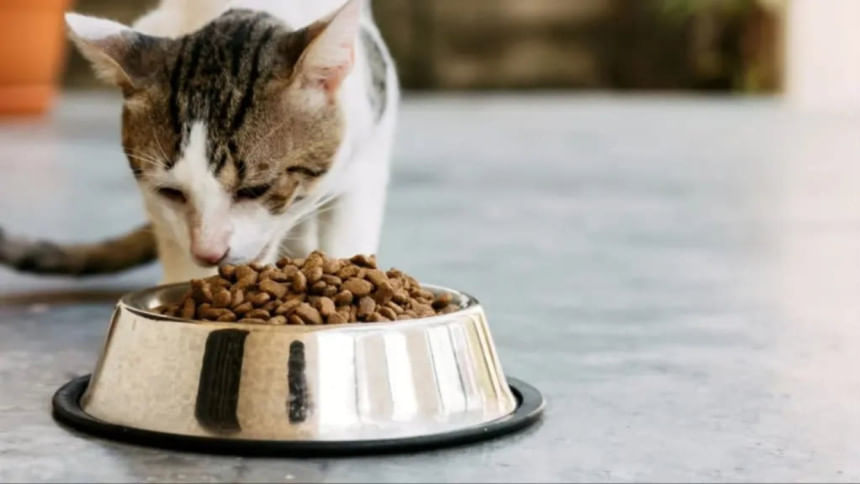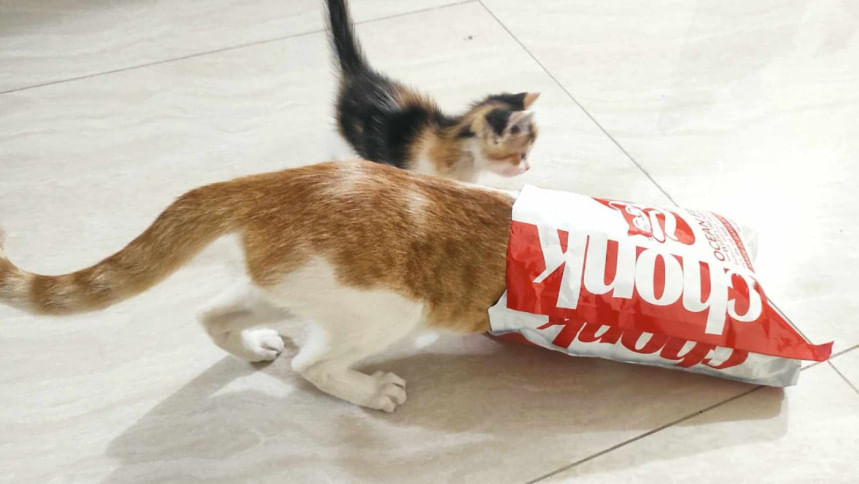Inside the making of a local cat food brand

Bangladesh's pet food market is largely reliant on imported products, with limited domestic manufacturing and few established local brands. The industry faces several challenges, including supply chain disruptions, high retail prices, and concerns regarding product authenticity. Although demand for packaged pet food is gradually increasing, particularly in urban areas, the market remains in the early stages of development.
Chonk, a local cat food brand, was launched with the goal of offering a consistent, locally produced alternative to imported cat food. Founded by Muhammed Asif Khan, Waseem Khan, and Abdus Sami - individuals without prior experience in the pet food industry - the initiative was developed in response to concerns over the safety and cost of existing products.
The idea emerged in April 2024, following incidents involving counterfeit pet food. After consulting with other cat owners and pet shop operators, the founders identified a gap in the market for reliable, affordable cat food. By November, Chonk had released its first batch of locally manufactured dry cat food.
"Due to the nature of this industry in Bangladesh, no one could help us figure out the process. We had to talk to international partners and vendors, simply to understand how this industry works and figure everything, including machinery, ingredients, and recipes, from scratch," Asif, one of the co-founders, explained.
Entering a new industry presented multiple challenges. Bangladesh lacked a supplier network for pet food ingredients and manufacturing equipment. According to the founders, they relied on international partnerships to learn about production processes, machinery, and formulation standards. Many of the necessary ingredients were not available domestically, and importing small quantities proved costly due to high minimum order requirements. This led to a significant initial capital investment.
There was also scepticism around local production, with some market participants suggesting that a domestically produced product would struggle to compete with established foreign brands. However, Chonk was marketed explicitly as a local brand, which the founders believe contributed to early customer interest.
"The good foreign brands are costlier, and also I think local brands can be more focused on the nutrition needs of local cats," shared Farhana Mojib, a cat parent of over three years.

In the absence of formal regulatory standards for pet food in Bangladesh, the Chonk team chose to follow international guidelines. They collaborated with a German laboratory to develop a formulation intended to meet nutritional and safety standards. The manufacturing process was designed to be automated, with limited human contact, and included testing of ingredients for factors such as moisture content, which affects product shelf life.
Affordability remains a key issue for many pet owners. Imported cat food brands such as Royal Canin are priced above BDT 1,000 per kg, with mid-range options ranging from BDT 550 to 650 per kg. Other brands, including Drools and Kat Club, typically sell for BDT 400 to 450 per kg, while repackaged loose varieties cost around BDT 350 to 400 per kg. In comparison, Chonk's 1.5 kg pack retails at BDT 499, with an effective per kg price of approximately BDT 332.
Despite the high production costs, Chonk's pricing strategy aimed to remain competitive. The company stated that its long-term goal is to improve supplier terms and achieve better cost efficiency without increasing prices for customers.
Initially launched as a direct-to-consumer brand, Chonk is now available in over 50 retail outlets, with plans to expand to around 300 stores nationwide. In addition to physical distribution, the brand maintains an online presence through a Facebook group where customers engage with product-related content and community activities.
Product iterations have been made in response to customer feedback. The original triangular kibble shape and fish oil coating were revised to a circular shape and poultry oil coating, after some users reported issues with odour and digestibility. The company also introduced improved sieving equipment to reduce breakage during packaging.
Chonk continues to collect customer input as part of its product development process, positioning itself as a locally produced alternative in Bangladesh's emerging pet food market.

 For all latest news, follow The Daily Star's Google News channel.
For all latest news, follow The Daily Star's Google News channel. 



Comments